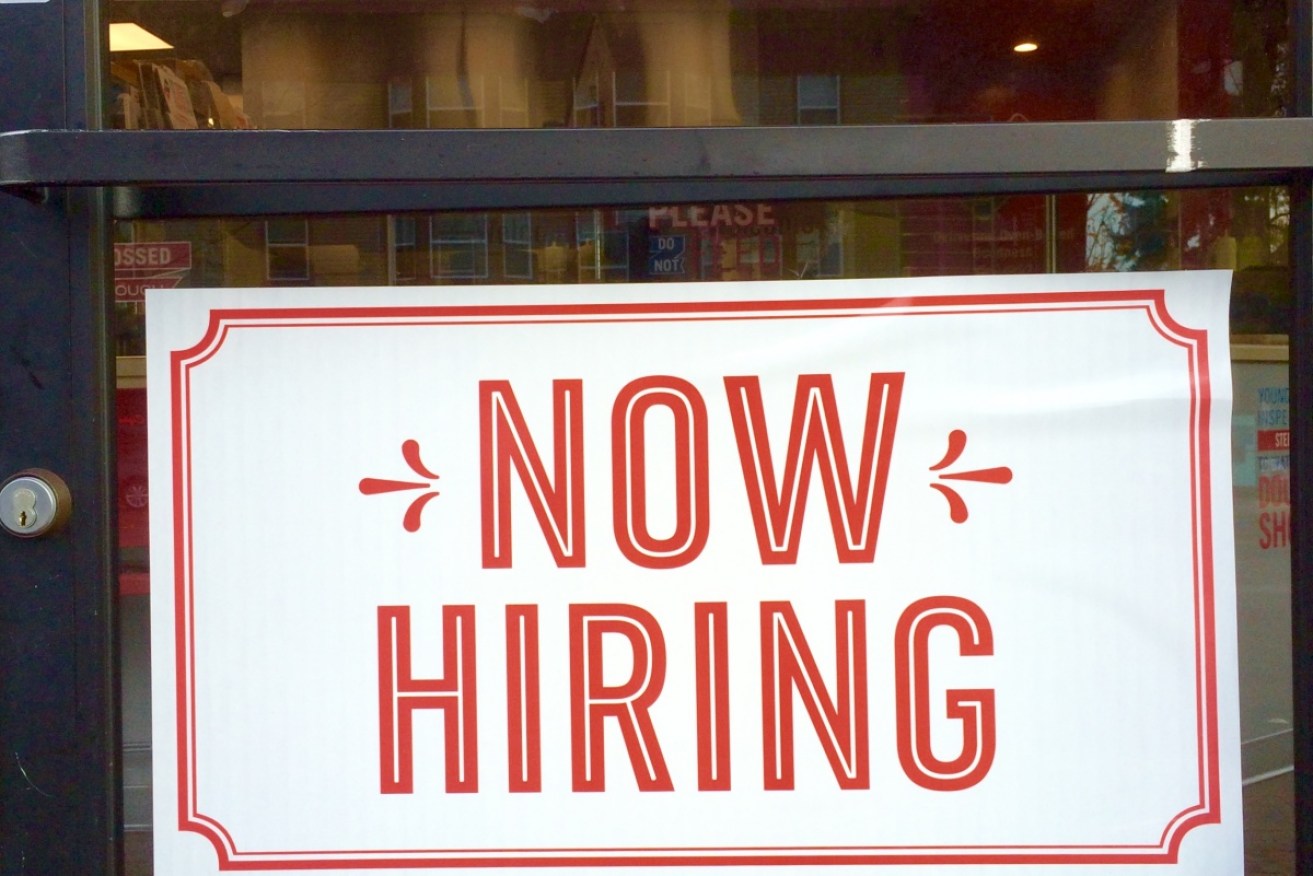Five things you can do today to help get a job tomorrow


Finding a job in tough labour market conditions requires a pragmatic approach, experts say. Photo: Getty
Tough labour market conditions have experts worried for Australians trying to break into a shrinking workforce.
A 37-month unemployment low, rising underemployment and a record-low wage growth has dug Australians deeper down the struggle to find employment.
But there are a few simple solutions that can help you get a job, or get a better job.
How to get their attention
Employers have a queue of people looking for a job – and your job is to get to the front.
But when the labour market is relatively tight the queue gets longer and it gets harder to move to the front and secure that vacancy.
Finding what makes you stand out from the rest and building a portfolio will boost your position in the line, University of Canberra director for the centre of labour market research Professor Phil Lewis said.
“Name any job you like and there will be 20-30 applicants applying and the employers will look through all the qualities they have,” Professor Lewis told The New Daily.
“Employers look for some means of screening people out, they are looking for something that will make you look different from the others.
“Whatever job it is – whether it is a low-skilled or high-skilled job – it’s providing a portfolio of things you’ve done that actually make you stand out against your competitors.”

The same approaches to joining the workforce don’t work anymore. Photo: Getty
Consider alternatives
RMIT business management lecturer and labour market expert Dr Alan Montague recommended not pigeonholing the path you take to finding a job and to be pragmatic in your approach to work.
He said even if positions don’t arise in your particular field, there might be jobs in similar roles available that can get your foot in the door.
“They may not be able to get that type of job but they can put their oar in the water and have a crack at getting a job that actually fits the qualification they have,” Dr Montague told The New Daily.
“They may not get a foothold in the labour market in one of those occupations but the skills they learn from that [job] can help them move to other similar areas.”
What to look for
Knowing the criteria of a specific job application and the characteristics employers are looking for can give you a leg up on the rest of the competition.
Professor Lewis said while public sector jobs document these requirements, the private sector often make it a guessing game for applicants.

Know what an employer wants in an applicant. Photo: Getty
Researching what the job could entail can eliminate the unknown and help decide if this is the right job for you.
“Employers have imperfect mechanisms to try and choose people so they have to work out the criteria employers are going to use to pick people,” he said.
If you know the degree required, the experience wanted and any other needed qualifications for a job you’re much more likely to succeed, he added.
Sprucing up your CV and shaping it to the job application is also vital.
“Whatever the job is you need to work out the criteria people are looking for and make sure you tailor your CV to actually fit that criteria,” Professor Lewis said.
“It is vital … don’t overload it with useless stuff.
“That CV might look completely different depending on what job you’re searching for.”
Don’t be a quitter
If you’re one of many average Australians already in the workforce but looking for a new job, you’re better off toughing it out than quitting.

Quitting a job with no job prospects is the worst thing you can do. Photo: Getty
“The worst thing you can probably do is just quit and become unemployed because that will send/give a negative signal to an employer,” Professor Lewis said.
He advised any period of unemployment is regarded unfavourably by employers and is why people who have been unemployed for a long time find it incredibly difficult to get a job.
“When employers see you’ve been unemployed, rightly or wrongly, they say ‘this person has been unemployed for five months, there must be something wrong with them’,” Professor Lewis said.
“That’s a signal that you can’t keep to the task.”

There are skills shortages in trade and professional pathways you can exploit. Photo: Getty
Identifying opportunities
Look for job shortages.
Doing research of what is in demand in the labour market and what is going to pay a full-time wage over a long period of time is one way to ensure a way into the job market.
Dr Montague offered tips such as checking where the skill shortages are at the Australia Bureau of Statistics, and looking at shortages of skilled workers at the Department of Employment Education and Training and specific professions.
Jobs that require more professionals in Australia are currently speech pathologists, GPs, and mathematics and science teachers, according to Dr Montague.
If you’re more akin to a trade pathway, he said there is a shortage of chefs, motor mechanics, carpenters electricians, plumbers, and air condition and refrigeration experts – types of trades that are in demand in the construction and renovation industries.








